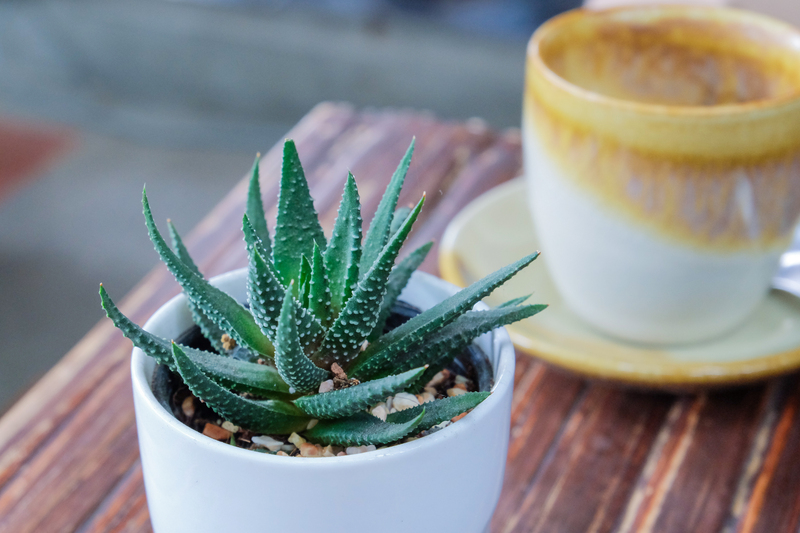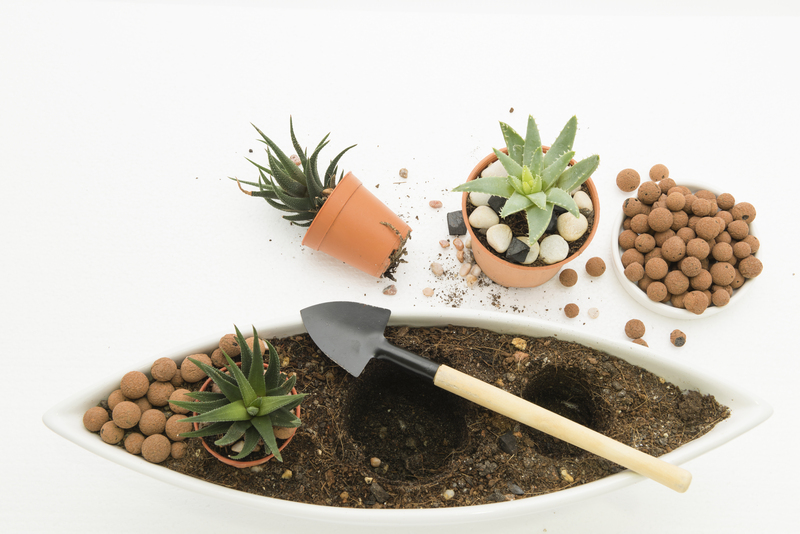Nurturing Soil with Composting Organic Waste
Posted on 23/09/2025
Nurturing Soil with Composting Organic Waste
Healthy soil is the lifeblood of a thriving garden and sustainable agriculture. By harnessing the power of composting organic waste, gardeners and homeowners can naturally enrich their soil, reduce waste, and unlock robust eco-friendly growth cycles. In this comprehensive guide, we'll explore the essential techniques, benefits, and science behind nurturing soil with compostable organic materials.
Why Nurture Soil with Composting Organic Waste?
Composting organic waste isn't just an environmentally sound practice; it's also a proven method to boost soil vitality, plant health, and ecosystem resilience. Understanding why organic waste composting matters forms the foundation for more sustainable gardening and agriculture.
Key Benefits of Composting for Your Soil:
- Enriches Soil Fertility: Compost adds essential nutrients, making your soil more productive for vegetables, flowers, and fruit trees.
- Improves Soil Structure: Organic matter in compost enhances soil texture, promotes aeration, and improves water retention.
- Reduces Landfill Waste: Transforming kitchen scraps and yard trimmings into compost diverts significant waste from overcrowded landfills.
- Suppresses Plant Diseases: Healthy soils with abundant organic compost are more resilient to pests and naturally deter diseases.
- Encourages Microbial Activity: Compost supports beneficial soil microbes crucial for nutrient cycling and plant vitality.

Understanding Organic Waste for Composting
Before starting the composting process, it's important to identify what organic waste can be composted. Not all household waste is equal--knowing what to include ensures optimal decomposition and nutrient-rich finished compost.
What is Organic Waste?
Organic waste is any biodegradable material originating from living organisms. This includes:
- Fruit and vegetable scraps
- Coffee grounds and tea bags
- Eggshells
- Grass clippings and leaves
- Wood chips and sawdust (untreated)
- Shredded newspaper and cardboard
- Dead flowers and plant trimmings
Nurturing soil with composted organic waste means using a balanced mix of these materials for the best results. Aim for a combination of "greens" (nitrogen-rich) and "browns" (carbon-rich) materials for an efficient composting process.
How to Start Composting Organic Waste
Home Composting Methods
There are several techniques to compost organic waste for healthy soil at home. The most common include:
- Backyard Bins and Piles: Ideal for those with yard space; simply layer organic waste in a bin or pile.
- Tumbling Composters: Enclosed bins that rotate easily, speeding up decomposition and minimizing odor.
- Vermicomposting: Using worms (typically red wigglers) to break down food waste, resulting in nutrient-rich vermicast.
Step-by-Step: Building a Compost Pile
- Choose a Location: Pick a level, well-drained spot with partial shade for your compost pile or bin.
- Add Your Materials: Begin with coarse materials (twigs, straw), then alternate layers of "greens" and "browns."
- Maintain Moisture: Compost should be about as damp as a wrung-out sponge. Water lightly if it's too dry.
- Aerate the Pile: Turn the pile every 1-2 weeks with a pitchfork or shovel to introduce oxygen and promote microbial activity.
- Monitor Progress: Decomposition should generate heat, a sign of active composting. Finished compost is dark, crumbly, and earthy-smelling.
Maintaining Nutrient Balance in Compost
For effective organic waste composting that nurtures soil, strive for the right ratio of carbon (browns) to nitrogen (greens). This fuel-mix keeps your composting microbes happy and breaks down organic matter efficiently.
Ideal Carbon-to-Nitrogen Ratios:
- Carbon-rich materials (Browns): Dried leaves, straw, cardboard, paper
- Nitrogen-rich materials (Greens): Food scraps, coffee grounds, fresh grass clippings
Target Ratio: Around 30 parts carbon to 1 part nitrogen (30:1) is optimal, but a range between 25:1 and 35:1 works well for most backyard compost piles.
Common Composting Mistakes to Avoid
- Too Wet or Too Dry: Excess moisture leads to rot and odor; too little water slows decomposition.
- Adding the Wrong Materials: Avoid meat, dairy, oily foods, and diseased plants--they attract pests and slow the process.
- Neglecting to Turn the Pile: Lack of aeration hinders decomposition and can produce unpleasant smells.
The Science Behind Compost: How Microorganisms Transform Organic Waste
Much of the magic in nurturing soil with composted organic waste comes from trillions of invisible workers: microorganisms. Bacteria, fungi, actinomycetes, and other beneficial microbes break down your compost ingredients into humus--a rich, dark, fertile material.
Composting Stages
- Mesophilic Stage (Warm, 20-40?C/68-104?F): Mesophiles start digesting simple carbohydrates and proteins.
- Thermophilic Stage (Hot, 40-70?C/104-158?F): As heat builds, thermophilic bacteria decompose tougher substances and kill most pathogens and weed seeds.
- Maturation Stage (Cooling): As materials break down, temperatures drop and decomposers finish converting organic waste into stable humus.
By harnessing these natural decomposition cycles, you create a powerful soil amendment that delivers nutrients over time and nurtures plant roots season after season.
How Compost Improves Different Types of Soil
Adding composted organic matter improves all soil types, transforming even poor soils into a fertile medium for growing plants. Here's how compost helps:
- Sandy Soils: Compost increases water and nutrient retention, preventing leaching and thinning.
- Clay Soils: Organic matter breaks up compacted particles, enhancing drainage and root penetration.
- Loamy Soils: Compost maintains balances and boosts the soil's natural productivity.
Physical, Chemical, and Biological Improvement
- Physical: Improves structure, making soil easier to work with and supporting healthy root systems.
- Chemical: Increases Cation Exchange Capacity (CEC), allowing soil to hold onto essential nutrients.
- Biological: Stimulates a vibrant microbial ecosystem, vital for plant health and disease resistance.
Biodiversity and Long-term Soil Nurturing
Nurturing your soil with regular additions of composted organic waste is about more than nutrients--it's about cultivating a rich web of life beneath your feet.
How Compost Bolsters Biodiversity:
- Feeds earthworms, insects, and beneficial nematodes
- Encourages symbiotic fungi (mycorrhizae) that aid plant roots in nutrient absorption
- Supports a diverse microbial community that suppresses soil-borne diseases
Long-term composting practices not only improve soil health for today but regenerate soil for future generations, making composted organic material central to sustainable agriculture and gardening.
Frequently Asked Questions on Composting Organic Waste
Can I compost all my kitchen and yard waste?
Most food and yard waste can be composted. However, avoid adding meat, dairy, bones, diseased plants, and weeds gone to seed, as they can create odor problems or introduce pests.
How long does it take to get finished compost?
With active turning and good moisture control, compost can be ready in 2-4 months. More passive methods may take 6-12 months. When ready, it should be dark, crumbly, and have an earthy smell.
What do I do with finished compost?
- Top-dress garden beds and lawns
- Mix into potting or container soil
- Add as a mulch around perennials, trees, and shrubs
- Create compost tea to water crops for additional benefits

Composting Organic Waste: A Step Toward a Greener Tomorrow
Nurturing soil through organic waste composting is a solution-packed action with remarkable long-term rewards. The practice positively impacts the environment by recycling valuable nutrients, reducing landfill mass, and curbing greenhouse gas emissions. It also releases a steady supply of organic matter into the soil, positioning you--with just your daily waste--as a champion for sustainability.
Simple Steps for Lasting Soil Wellness:
- Start small: Even a kitchen-scrap bucket and simple backyard pile make a difference.
- Learn and adapt: Observe your compost pile and adjust for best results--moisture, aeration, and material mix.
- Share and educate: Encourage neighbors, schools, and community gardens to nurture soil with composted waste for broader impact.
Ultimately, caring for the soil by composting organic waste creates a self-sustaining cycle of renewal--each season richer and more productive than the last. Whether you are stewarding a small urban lot or a rural farm, composting is the cornerstone for healthy landscapes, cleaner communities, and a flourishing environment.
Conclusion: Act Today, Reap Tomorrow's Harvest
Transforming waste into wealth is possible with the magic of compost. By making composting a routine part of your home, garden, or farm, you nurture soil, cut down on landfill waste, and foster healthier plants and ecosystems.
Start nurturing your soil with composted organic waste today--and become a steward of the land and a champion for a greener, more sustainable future.
Latest Posts
Nurturing Soil with Composting Organic Waste
Green Walls: The Future of Urban Landscaping
Turn Dark Corners into Green Havens with Evergreen Climbers

